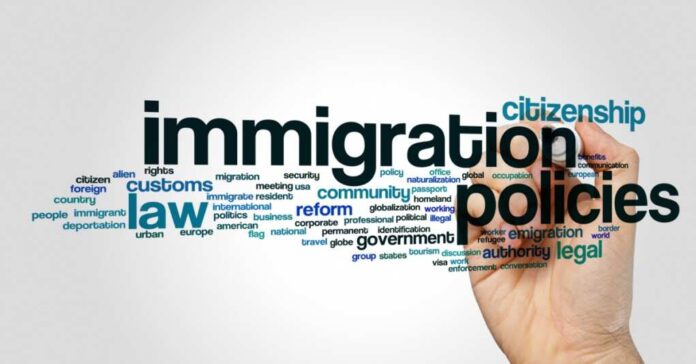
Ah, the European Union—a grand experiment in unity, now grappling with the age-old question: ‘How many bureaucrats does it take to change an immigration policy?’ Spoiler alert: they haven’t figured it out yet.
In recent months, the EU has been embroiled in a heated debate over immigration policies, with member states squabbling like contestants on a reality TV show. The issue? How to handle the influx of migrants without upsetting the delicate balance of their political ecosystems. It’s a classic case of ‘too many cooks in the kitchen,’ and the soufflé is collapsing.
Germany, the EU’s de facto leader, has reinstated border checks, much to the chagrin of its neighbors. This move is seen as a desperate attempt to placate rising domestic concerns over immigration. After all, nothing says ‘we’ve got this under control’ like building walls—literal or metaphorical.
Meanwhile, Italy has taken a page out of Australia’s playbook by setting up asylum processing centers in Albania. Because outsourcing isn’t just for call centers anymore; it’s also for human lives. This innovative approach allows Italy to keep migrants at arm’s length, quite literally, while maintaining the façade of humanitarian concern.
Not to be outdone, Poland has proposed temporarily suspending asylum rights, citing concerns over ‘hybrid warfare’ from neighboring countries. It’s a bold strategy, Cotton; let’s see if it pays off. By effectively slamming the door on asylum seekers, Poland aims to protect its sovereignty—or at least that’s the official line.
The irony here is palpable. The EU, a bloc that prides itself on shared values and open borders, is now erecting barriers faster than you can say ‘Schengen Agreement.’ The rise of far-right parties across Europe has only added fuel to the fire, pushing mainstream politicians to adopt tougher stances on immigration. It’s a race to the bottom, and everyone’s competing for the gold.
But let’s not forget the bureaucrats in Brussels, who are valiantly attempting to herd these wayward cats. The European Commission has proposed new legislation to facilitate deportations and create a more hostile environment for migrants. Because when in doubt, make life harder for the most vulnerable. That always ends well.
The crux of the matter is this: Europe is facing a demographic crisis, with aging populations and declining birth rates. Migrants could potentially fill labor shortages and contribute to economic growth. Yet, the political climate has turned so toxic that rational discourse has been replaced by fearmongering and scapegoating.
In the end, the EU’s internal divisions over immigration policies reveal a deeper existential crisis. The lofty ideals of unity and solidarity are being tested, and so far, the results are less than encouraging. As member states retreat into nationalist rhetoric, the very fabric of the European project is at risk of unraveling.
So, what’s the solution? Perhaps it’s time for the EU to have an honest conversation about its identity and values. Is it a union of shared principles, or merely a marriage of convenience? Until that question is answered, the comedy of errors will continue, and the world will watch as Europe fumbles through its latest act.
Stay tuned, folks. The show is far from over.







